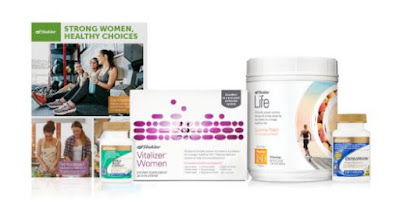Celebrate Women’s Health!
It’s never too early or too late to work toward being your healthiest you! This National Women’s Health Week, May 14–20, is a great time to empower all women to make their health a top priority.
Women often serve as primary caregivers for their families, putting the needs of their spouses, partners, children, and parents before their own. As a result, women’s health and well-being can become secondary. National Women’s Health Week brings together communities, businesses, government, health organizations, and other groups in an effort to promote women’s health. So remind all the women in your life to be sure they are taking care of their own health along with all the other people they care for.
Build health by building healthy habits
National Women’s Checkup Day is May 8. Follow these tips to help stay your healthiest.
GET PREVENTIVE SCREENINGS. Visit a health care professional to receive regular checkups and preventive screenings. Important screenings for women include an annual physical, blood pressure test, and screenings for cervical cancer (pap test), cholesterol, and thyroid function. Starting at age 50, women should get screened for breast cancer every one to two years. And after menopause, women should get a bone density test to be screened for osteoporosis. Don’t forget to ask about nutrition screenings. You don’t have to guess if you are deficient in vitamin D or B12.
GET ACTIVE. Regular activity is one of the most effective strategies for maintaining a healthy weight. Regular physical activity helps to improve your cardiorespiratory (heart, lungs, and blood vessels) and muscular fitness, helps with mood, and can help reduce your risk of cognitive decline. Aim for at least 30 minutes of moderate intensity activity daily. An example would be brisk walking—activity that raises your heart rate and during which you could talk but not sing. Also aim for strength-building (resistance) exercise 2-3 days per week.
EAT HEALTHY. Eating healthy isn’t really that difficult—and the health payoff is incredible. To reduce your risk of chronic diet-related health issues:
Eat plenty of fruits and vegetables—at least seven servings per day. Smoothies can be a delicious way to increase your fruit & vegetable intake.
Eat whole grains, such as whole wheat, oatmeal, and brown rice—and avoid white grains
Eat lean proteins, including fish, skinless poultry, lean red meats, dry beans, and eggs
Cook primarily with monounsaturated fats, such as olive oil, and limit fried food
Limit saturated and trans fats, cholesterol, sodium, and excess sugars
Drink alcohol in moderation—for women, that means no more than one drink per day
 |
| Woman's supplements to feel better or get your money back |
TAKE DIETARY SUPPLEMENTS. Supplements are needed to close the nutritional gaps as most of our food is not picked ripe and that is where the nutrition gets into food. Supplements are not a replacement for food but just as they say supplemental to a good diet. Optimal Health is what we are going for. This being Woman's Month we have a package that is great for women. *** Womans Health Package***
GET ENOUGH SLEEP AND MANAGE STRESS. Try to get a good night’s rest every night. Adequate sleep makes you more productive and energetic—this means 7–8 hours per night. Develop a sleep routine that includes limiting computer screen time at night. Recognize the signs of stress and take action to address it. Focus on controlling what you can, and let the rest go.
AVOID UNHEALTHY BEHAVIORS. Smoking, texting while driving, not wearing a seat belt or bicycle helmet, and other unhealthy or unsafe habits can severely damage your overall health.
Most of us go many days between trips to the doctor, a fact that makes it clear that we must take day-to-day responsibility for our health. Whether it’s pushing ourselves a little harder at the gym or calling our doctors to make sure we’re up to date on our screenings, we can all truly make a difference—not just for ourselves, but for all the people we love.

